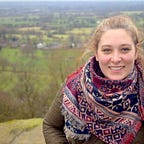More than just a Grant Decision
The Deciding Together report draws attention to the fact that participatory grantmaking (PGM) is more than just grantmaking. It described PGM as both a power shifting ethos and a process that places the communities at the centre.
Some might argue being involved in the process of PGM is where the magic happens. The opportunity for people to come together, meet, discuss, share and learn is important and one that doesn’t happen as often as it could within philanthropy.
In Deciding Together Nadia Nadia van der Linde, formerly of the Red Umbrella Fund, says participants continually emphasize how much they learn from their participation. “They connect with other organizations or people in the movement and see the benefits of solidarity and learning from peers.It enhances their fundraising skills, adds knowledge to their work, and generates ideas and inspiration.”
Being involved in PGM can provide opportunities for decision makers to:
- Improve applications in the future — learn what works well or not in an application form, challenge as well as improve the ideas they would put forward to funders
- Develop relationships and partnerships with others involved in the decision making
- Increase their understanding and knowledge of an area, issue or sector
- Share resources, policies and advice through the process
- Learn who else is working in a certain space, area or issue and what they are doing
On top of decision makers improving their knowledge and skills it also provides this opportunity for funders or donors if you are using a model of PGM that involves them in the process.
If we don’t see PGM as a process in itself there is a chance that we miss the magic. We look to the decisions made as the output rather than the incredible things that can happen through the decision making itself.
The Leaders with Lived Experience Programme at The National Lottery Community Fund was designed with the input of over 70 lived experience leaders, 17 of whom joined us on a two day design residential. During this part of the process lived experience leaders started to collaborate and share practice — people offering to support and proof read others funding applications, people setting up introductions to their funders and offering advice, people sharing examples of their policies and best practice.
Whilst visiting The Other Foundation and spending time at the Kopano (from the Sotho n. [ko-pa-no] meaning a gathering to address an important issue), I was able to chat to a range of their peer reviewers.
Thandeka Mukuku described this experience as “Life changing for me. It’s an incredible opportunity — a chance to travel and change lives. I was left with a sense of wow”.
Thandeka also reflected that the opportunity “…meant I had to think like a funder, my mind shifted. I had to see how things are aligned and I needed to see the bigger picture. This opportunity made me want to be part of the bigger picture…Everything I thought I knew about funding was wrong.”
Being a peer reviewer and a volunteer at Kopano made Thandeka want to be part of the community that The Other Foundation has created and because of this Thandeka now works at the Other Foundation as a Donor Reporting Officer.
Whilst at the Kopano I also had the opportunity to spend time with Lwazi Mulaudi who is a founding member of Parents of Families of South African Queers (PFSAQ). Lwazi reflected on the opportunity to learn what donors are looking for within applications.
“It helps a lot — you know what donors are looking at. You learn the importance of clarity. It let me know who else was doing things so we aren’t duplicating and solidified the importance of what my organisation is doing. I now know the who, what, when and how [in the sector is tackling issues]… I can reflect on past work and other grants I’ve submitted and realise why I didn’t get it…It’s made applying for other applications easier… You think, think and think again.”
Being involved in this process enabled Lwazi to increase the income for PFSAQ through improved understanding of funding processes and using what was learnt to improve their funding bids.
The process of PGM itself can have a huge beneficial impact for those involved and the sector more widely but in order for this to reach its full potential we need to recognise this. We can’t just concentrate on the decisions that are made but how we make these decisions. Being conscious to not just do things in the way that we have before but being deliberate in designing the support we offer, the way that we do things, meeting people’s access requirements and building in time for relationship building and networking.
